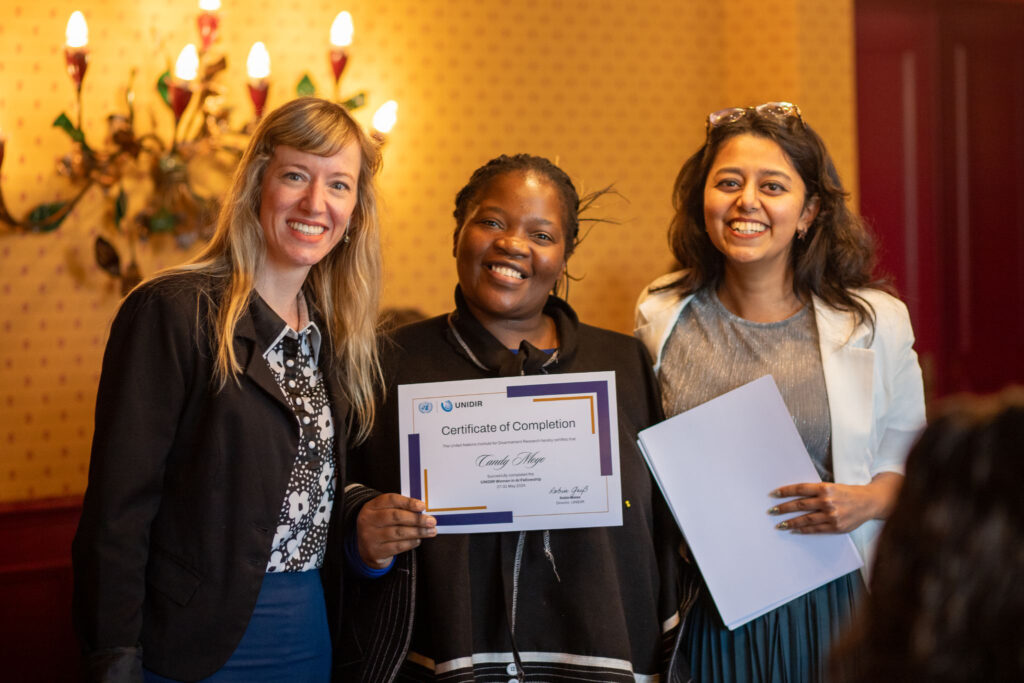The United Nations Institute for Disarmament Research (UNIDIR) recently concluded the pilot edition of its Women in AI Fellowship. The Fellowship entailed a week-long training programme in Geneva from Monday, 27 May, to Friday, 31 May 2024, for 31 selected women diplomats from as many countries. The Fellowship programme equipped the Fellows with knowledge and resources related to artificial intelligence (AI), especially within the context of technical, legal, governance and ethical conversations within the field of international peace and security.
During the week, the Fellows delved into the intricacies of AI technology, exploring its military, security and defence applications. They discussed considerations related to lethal autonomous weapons systems (LAWS) and other affiliated technologies. Additionally, there was a broader conversation about the current applications of AI, defense architecture, and foresight activities. Of particular interest to the Fellowship was the aspect of biases perpetuated by AI technologies, both from civilian and military application perspectives, throughout all programme sessions.
After gaining this foundational knowledge, the Fellows engaged in crucial discussions around governing AI: who should be responsible, where, and how. A briefing on UNIDIR’s current project around confidence building measurescomplemented these discussions and provided food for thought on governance options. The Fellows actively participated in sessions featuring external speakers from intergovernmental organisations, academic institutions, tech companies, humanitarian organisations, mediation entities and a standardisation body. Fellows also had the unique opportunity to discuss broader questions around gender, security and AI with the UN Under-Secretary General and High Representative for Disarmament Affairs, Ms. Izumi Nakamitsu.
In addition to these sessions, the Fellows benefited from a study trip to the École Polytechnique Fédérale de Lausanne (EPFL). There they heard from AI scientists and researchers about innovation, research and development work happening around AI in labs, and how these findings are disseminated to wider audiences. These discussions helped the Fellows to critically analyse discussions around “killer robots” as highlighted in a Netflix documentary screening. To wrap up the week, the Fellows attended the ITU AI for Good Summit.
In feedback sessions, Fellows positively acknowledged the diverse viewpoints around AI presented during the Fellowship and expressed that their learnings around AI would benefit their future work in related areas. The opportunity to form networks and informal connections among women diplomats from around the world, all working on similar issue domains, was also greatly appreciated. As UNIDIR evaluates its own learnings from this pilot edition of the Women in AI Fellowship, we hope to continue this as a regular feature of the Institute’s growing repertoire of capacity building initiatives, given the overwhelming rate of interest and positive feedback from the first cohort of Fellows.
Watch all video testimonials from our 2024 Women in AI Fellows on our YouTube channel.
UNIDIR’s Women in AI Fellowship was only possible due to the generous support of its donors, specifically Canada, Germany, Ireland, Italy, the Netherlands, Norway and Switzerland.
